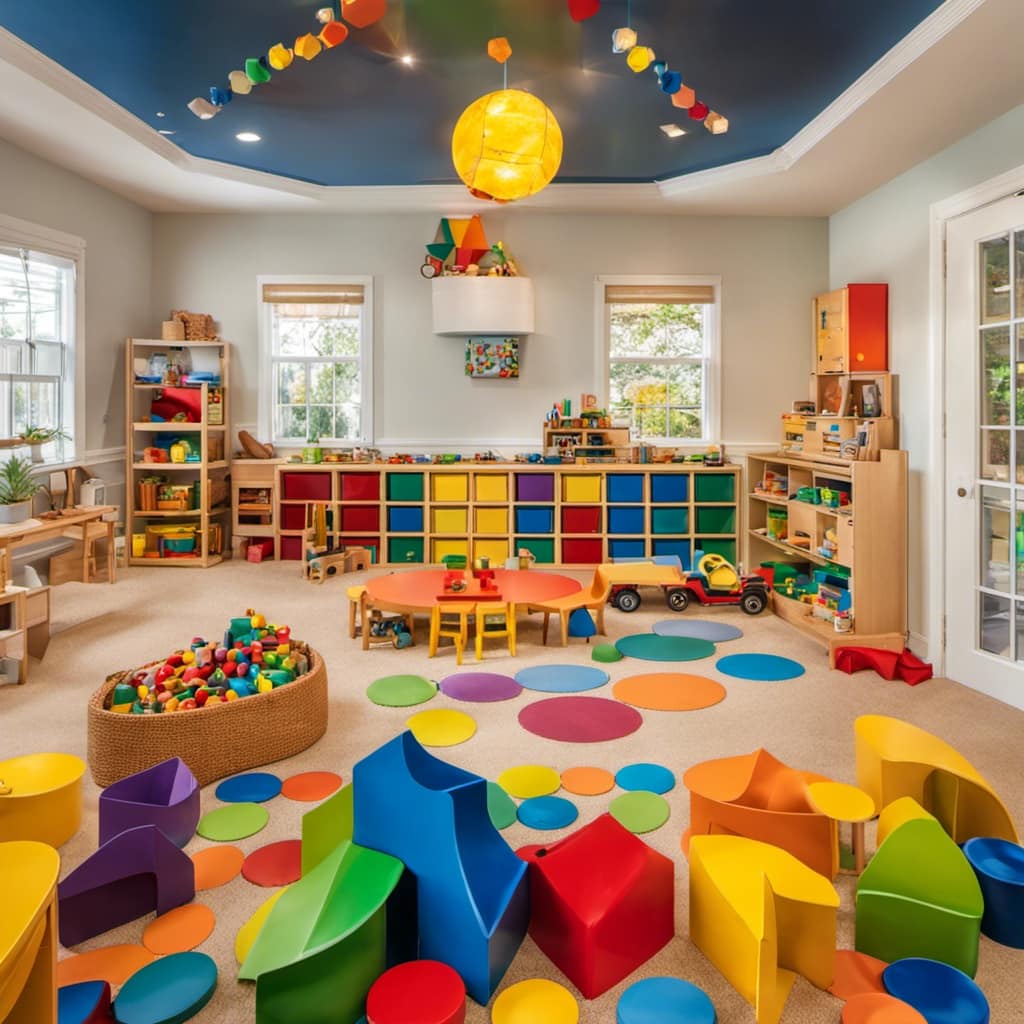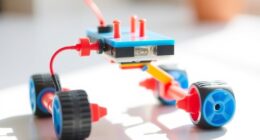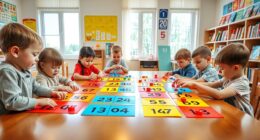As a Montessori educator, I have witnessed firsthand the powerful effects that practical life activities can have.
These activities are like the building blocks of a child’s development, laying the foundation for skills, independence, and collaboration.
From pouring and transferring objects to using tools like scissors and tweezers, children refine their hand-eye coordination and strengthen their hand muscles.
But the benefits go beyond fine motor skills. Practical life exercises promote social skills, instill a sense of responsibility, and foster confidence.
Join me as we explore the incredible world of Montessori practical life and its impact on young minds.
Key Takeaways
- Practical life exercises in Montessori education develop fine motor skills, concentration, and independence.
- These exercises promote social skills and collaboration by fostering teamwork, turn-taking, and sharing, as well as encouraging empathy and respect for others.
- Practical life activities enhance fine motor skills through pouring, transferring, using scissors, and tweezers.
- Practical life exercises help children focus and improve concentration.
The Benefits of Practical Life Exercises in Montessori Education
I believe that the benefits of practical life exercises in Montessori education are numerous. They develop fine motor skills, concentration, and independence.
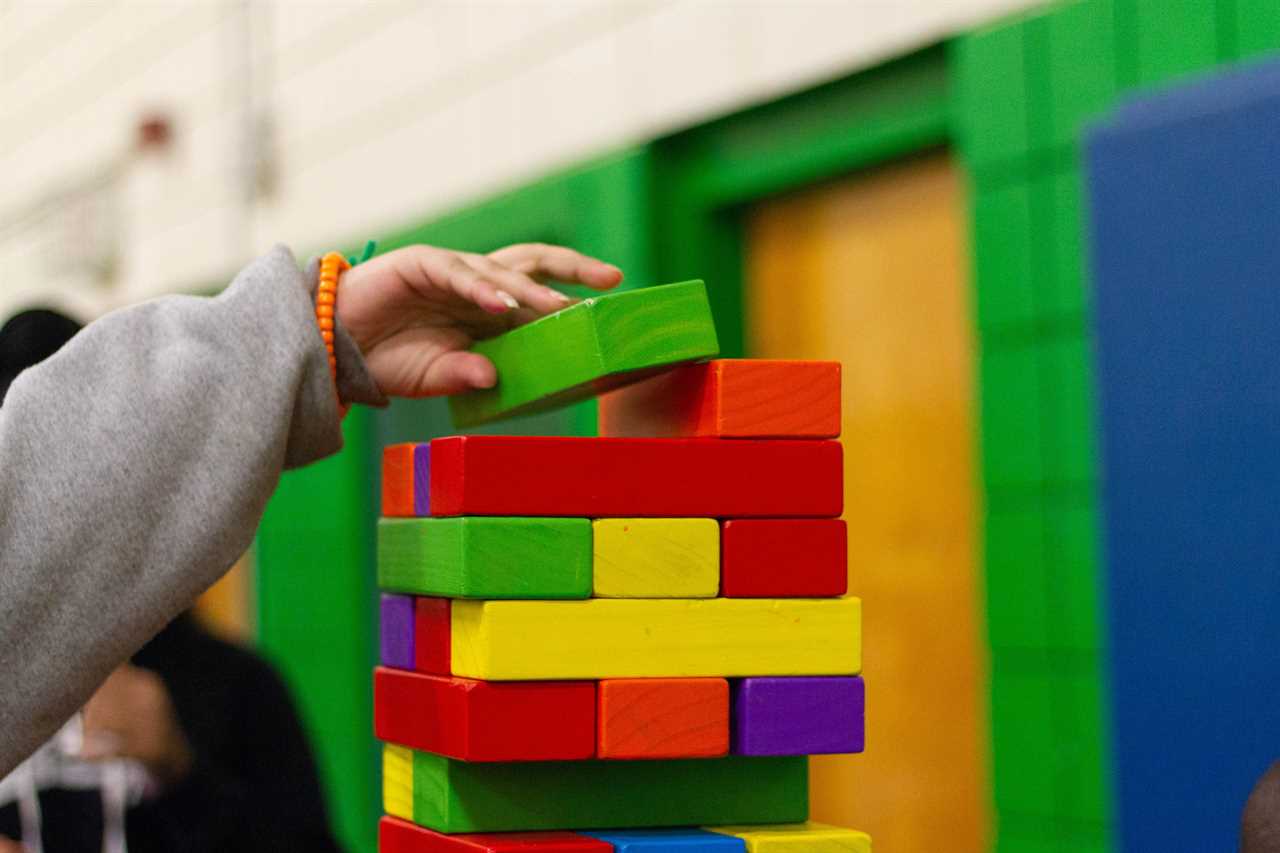
Practical life activities play a crucial role in the development of young children. These activities not only enhance fine motor skills but also promote concentration and independence.
Through pouring and transferring objects, children refine their hand-eye coordination and strengthen their hand muscles. These exercises also lay the foundation for academic skills and foster a sense of responsibility and self-sufficiency.
Additionally, practical life activities promote social skills and collaboration. Children learn the importance of teamwork, turn-taking, and sharing, while also cultivating empathy and respect for others.
The importance of practical life activities in Montessori education cannot be overstated. They provide a solid foundation for overall growth and development.
Developing Fine Motor Skills Through Practical Life Activities
Developing fine motor skills through these activities boosts confidence and a sense of accomplishment.
As an experienced Montessori educator, I have witnessed firsthand the incredible benefits of practical life activities in developing these skills.

Hand-eye coordination is enhanced through tasks such as pouring, transferring objects, and using scissors or tweezers. These activities require precision in movements, allowing children to refine their motor skills and gain mastery over their actions.
From lacing and threading to buttoning, these exercises also develop concentration and attention to detail.
As children master these skills, their confidence soars, and they feel a great sense of achievement.
Not only do practical life activities lay the foundation for future academic skills, but they also strengthen hand muscles, preparing children for a lifetime of success.
Building Concentration Through Montessori Practical Life Exercises
Building concentration is a key benefit of practical life exercises in the Montessori curriculum. As a Montessori educator, I have witnessed firsthand how these activities improve focus and attention to detail in children. Here are four ways in which Montessori practical life exercises help children develop their concentration skills:
-
Pouring water into cups: This activity enhances hand-eye coordination and requires children to concentrate on the task at hand, pouring the water without spilling.

-
Transferring objects with tongs: By using tongs to transfer objects from one place to another, children improve their fine motor skills and learn to pay attention to the delicate movements required.
-
Sorting objects by color or size: This exercise promotes visual discrimination and attention to detail as children carefully observe and categorize objects based on their characteristics.
-
Lacing, threading, and buttoning: These tasks require children to concentrate on the precise movements needed to complete them, improving their focus and attention to detail.
Through these practical life exercises, children not only improve their concentration skills but also develop a sense of accomplishment and satisfaction in their ability to focus and pay attention to details. This lays a strong foundation for their future academic success and overall well-being.
The Foundation of Basic Skills: Montessori Practical Life Curriculum
The foundation of the Montessori practical life curriculum is essential for overall development and future learning. It is through these practical life activities that children develop essential skills and gain independence. The curriculum serves as the building blocks for foundational learning and lays the groundwork for academic success.
By engaging in activities such as pouring, spooning, buttoning, and zipping, children not only develop fine motor skills but also learn important life skills. These activities have a purpose and serve as the foundation for future academic skills. Through these activities, children become more confident and accomplished, instilling in them a sense of responsibility, self-sufficiency, and collaboration.
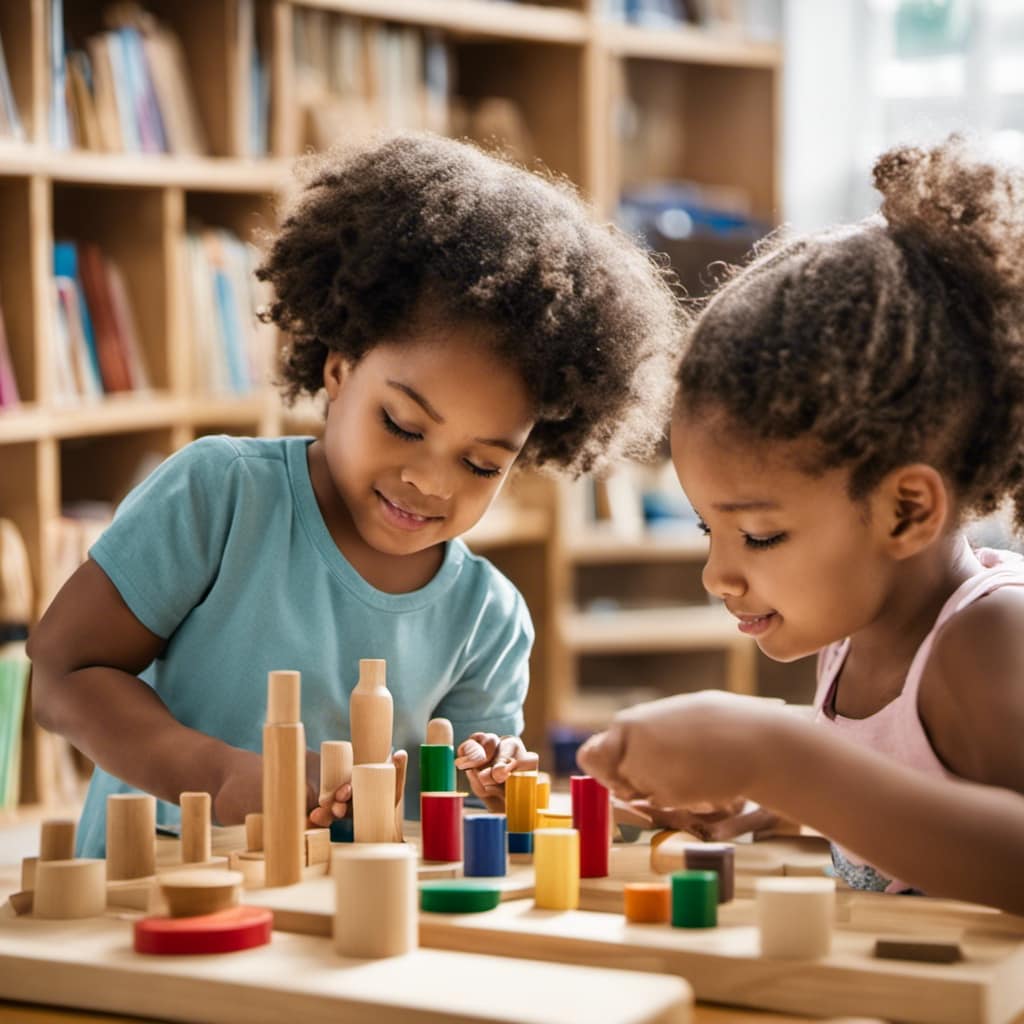
The table below highlights the key aspects of the Montessori practical life curriculum:
| Skills Development | Foundational Learning |
|---|---|
| Fine motor skills development through pouring, transferring, using scissors, and tweezers. | Building the foundation for future academic skills and strengthening hand muscles. |
| Enhancing concentration and attention to detail through lacing, threading, and buttoning tasks. | Developing a sense of responsibility, self-sufficiency, and confidence. |
| Promoting social skills and collaboration through teamwork, turn-taking, sharing, and empathy. | Fostering a positive attitude towards life and encouraging respect for others. |
The Montessori practical life curriculum not only equips children with necessary skills but also fosters a love for learning and a sense of independence. It is through these activities that children gain the confidence and mindset needed for future success.
Promoting Social Skills and Collaboration in Practical Life Activities
Engaging in practical life activities allows me to develop important social skills and work collaboratively with others. These activities not only promote independence and fine motor skills but also play a crucial role in fostering social interactions. Here’s how practical life activities promote social skills and collaboration:
-
Peer Learning: Practical life activities provide opportunities for children to learn from and with their peers. Working together, children can exchange ideas, share strategies, and support each other’s learning.
-
Problem Solving Skills: Practical life activities often require problem solving and critical thinking. Collaborating with others helps children develop these skills by encouraging them to brainstorm solutions, consider different perspectives, and work towards a common goal.
-
Teamwork: Through practical life activities, children learn the importance of teamwork. They practice taking turns, sharing materials, and listening to others’ ideas, fostering a sense of cooperation and respect.
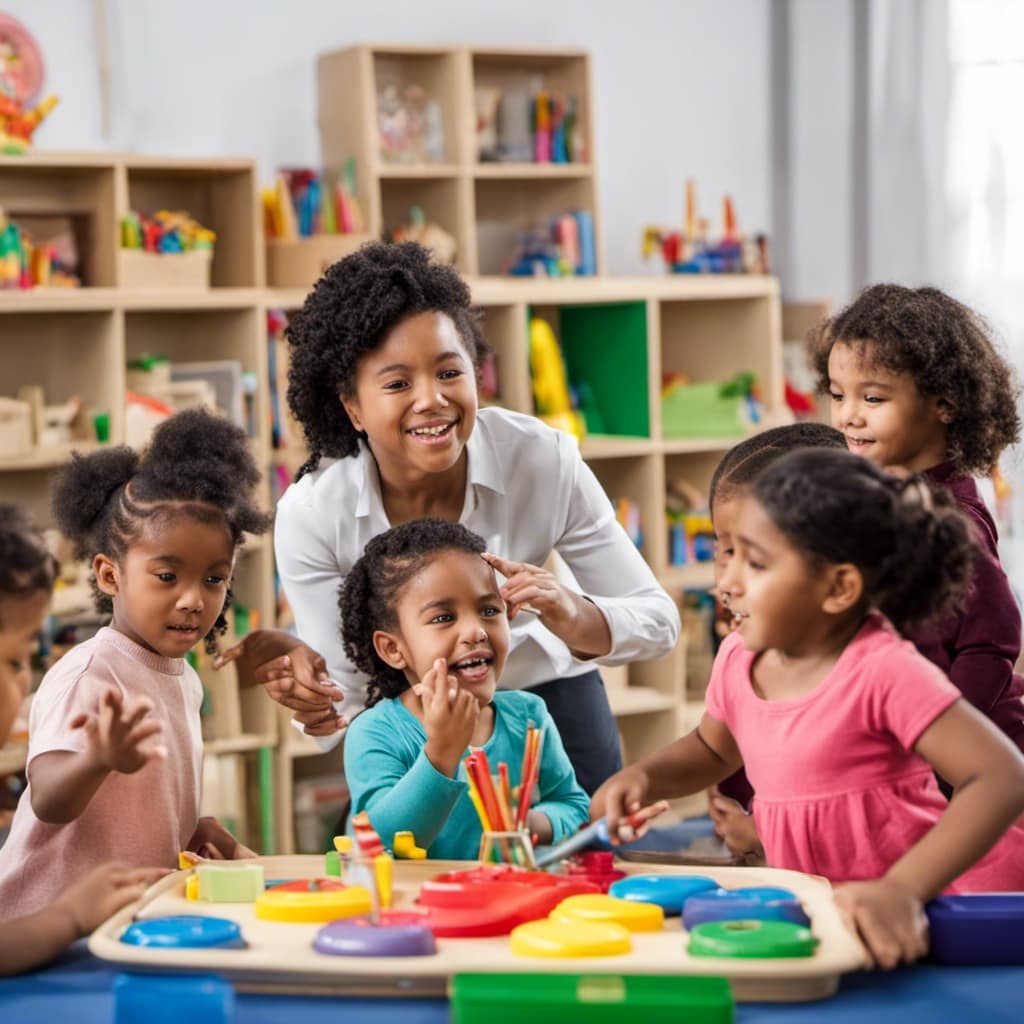
-
Empathy and Communication: Practical life activities provide a platform for children to develop empathy and effective communication skills. They learn to listen attentively, express their thoughts and feelings, and understand and respect the perspectives of others.
Enhancing Independence Through Montessori Practical Life Skills
Enhancing my ability to work independently, practical life activities have empowered me to take charge of my own tasks and responsibilities.
Through these activities, I have learned valuable skills that promote independence and self-sufficiency. Pouring, spooning, buttoning, and zipping activities have not only refined my fine motor skills but have also instilled a sense of accomplishment and confidence in me.
By mastering these tasks, I have gained the necessary skills to navigate everyday life with ease. Practical life exercises have fostered self-sufficiency by teaching me how to complete tasks on my own and take ownership of my responsibilities.
They have provided me with the tools to become a self-reliant individual who can confidently tackle any challenge that comes my way.
Frequently Asked Questions
How Do Practical Life Exercises in Montessori Education Enhance Problem-Solving Skills?
Practical life exercises in Montessori education enhance problem-solving skills. Through these exercises, children learn to analyze situations, think critically, and find solutions independently. They develop a sense of confidence and resourcefulness in facing challenges.
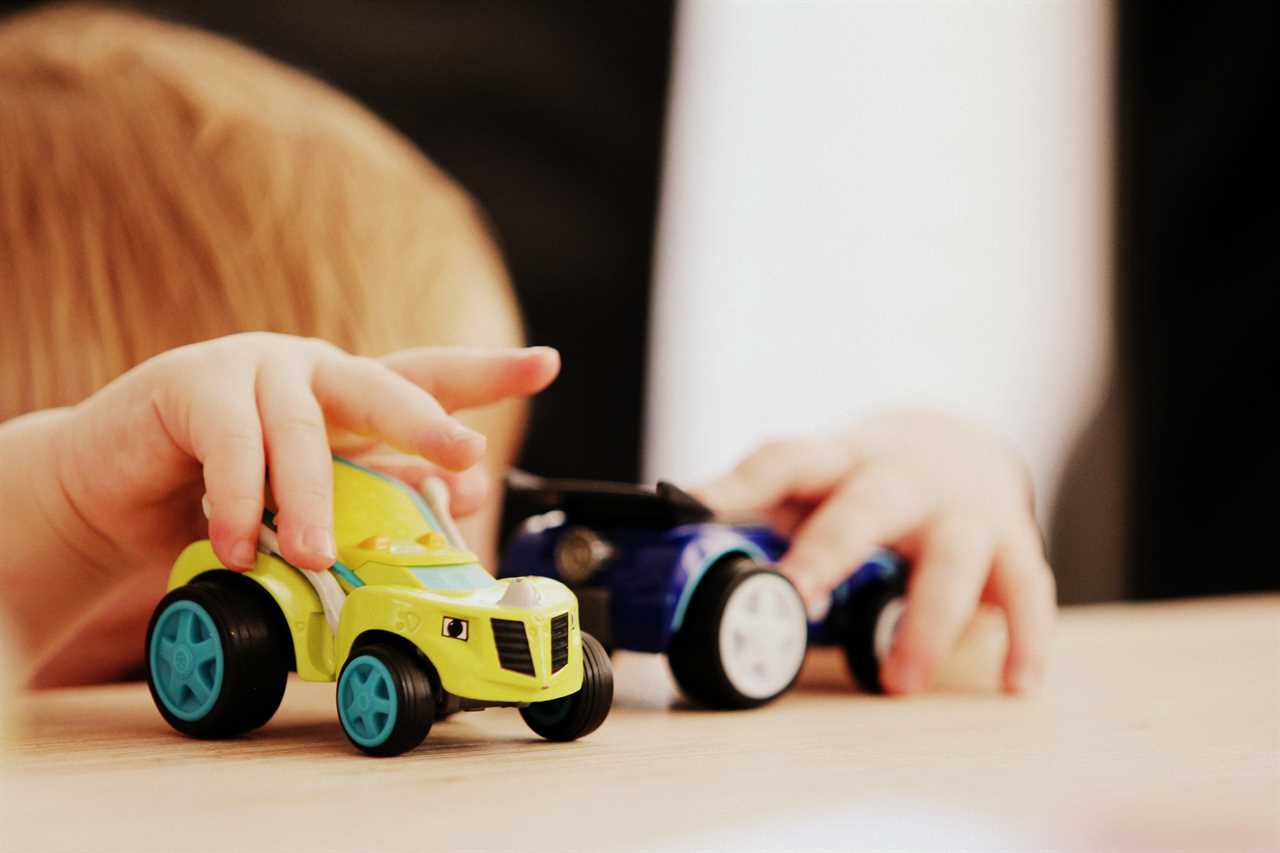
What Are Some Examples of Practical Life Activities That Specifically Promote Empathy and Respect for Others?
Empathy building activities in practical life promote respect for others. Engaging in acts of kindness, like helping a friend clean up or sharing materials, fosters empathy. Encouraging children to listen, understand, and support each other builds a culture of respect.
How Do Practical Life Exercises in Montessori Education Contribute to the Development of Self-Esteem?
Practical life exercises in Montessori education contribute to self-esteem through role modeling and fostering independence. By allowing children to engage in purposeful activities, they develop a sense of accomplishment and confidence in their abilities.
Can You Provide Examples of Practical Life Activities That Help Children Develop Their Sense of Responsibility?
Sure! Let me give you a couple of examples of practical life activities that teach responsibility: caring for plants and setting the table. These activities help children develop a sense of responsibility and contribute to their overall growth.
How Do Practical Life Exercises in Montessori Education Support the Development of Executive Functioning Skills?
Practical life exercises in Montessori education support the development of executive functioning skills by enhancing cognitive skills and promoting developmental benefits. These activities cultivate focus, problem-solving abilities, organization, and self-regulation, essential for success in all areas of life.
Conclusion
In conclusion, the theory that practical life exercises in Montessori education are essential for a child’s development is undeniably true.
As an experienced Montessori educator, I have witnessed firsthand the tremendous impact these activities have on children.

Not only do they enhance fine motor skills and concentration, but they also foster independence, collaboration, and social skills.
The Montessori practical life curriculum lays a strong foundation for basic skills and cultivates a sense of responsibility and self-sufficiency.
I am passionate about the transformative power of practical life exercises and firmly believe that they shape confident, accomplished, and collaborative individuals.





